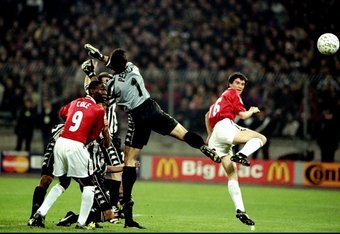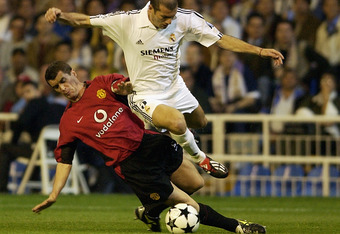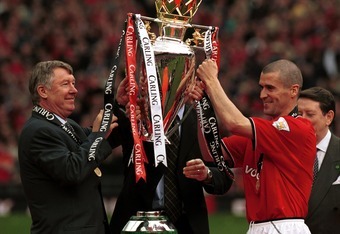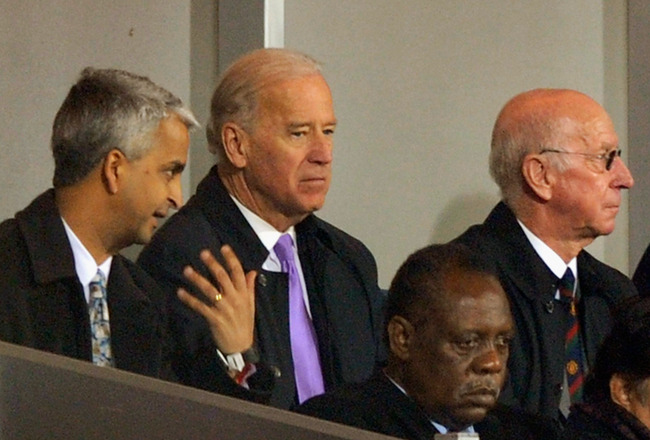
Should coaches be held responsible for horrific fouls? Paul Gardner feels so, and after Colorado's Brian Mullan's 10-game suspension for his vicious tackle on Seattle's Steve Zakuani, is the main topic of his column in Soccer America.
So now we know. Brian Mullan, for his horrific foul on Steve Zakuani, gets a 10-game suspension. A sentence that will, no doubt, set off an earnest debate. Has the MLS Disciplinary Committee been too harsh on Mullan? Or not harsh enough?
There is always going to be a feeling in these cases that it would be fair, and justice would be nicely done, if the aggressor were suspended until the opponent he crippled is ready to make his comeback.
When I say “in these cases” I’m not referring to cases of incidental, or accidental, injury -- but only to those where there is evidence of either intent or blatant recklessness. In Mullan’s case, I cannot see how there can be any doubt. Forget “intent”, which is almost impossible to define. Intent to go in hard on Zakuani? Definitely. Intent to break his leg? No, not that.
Where Mullan is abundantly guilty is on the charge of recklessness. MLS decided that his foul was “reckless, egregious, and showed utter disregard for the safety of his opponent.” This is baffling, because although it sounds like a heavy judgment, it uses words that, in the FIFA rules, apply to non-red-card fouls.
Rule 12 defines “Reckless” in this way: “Reckless means that the player has acted with complete disregard to the danger to, or consequences for, his opponent.” The problem being that, for such behavior, the rules stipulate only a yellow card, not a red. The severity of the MLS decision therefore, presumably, hinges on the word “egregious” -- a word that needs a definition in this context.
We know the non-legal meaning of the word, and presumably that is what we’re dealing with here -- something flagrant, particularly bad. But evidently not bad enough to warrant a really lengthy suspension. Satisfying as it would seem to make the aggressor’s punishment fit his victim’s suffering, there are obvious difficulties in applying such a sentence. Anyway, how do you compensate for the pain, for the hospital stay, the mental anguish, the recovery therapy?
But ruling out some form of punishment linked directly to the suffering of the victim still leaves plenty of room for heavy punishment. What’s wrong with a season-long suspension? Or 20 games?
One wonders how the figure of 10 games was arrived at. Probably it is a compromise -- in which case it is a poor decision. As a compromise between those who would like a lengthy suspension, and those who might be satisfied with the minimum 1-game suspension, 10 games does not sound right. It is too close to the minimum. Twenty games is more like it -- a harsh penalty for a particularly atrocious piece of thuggery. The addition of a fine is no doubt considered necessary, but it has to be meaningful -- the nugatory $5,000 assessed against Mullan is hardly likely to send a stern message.
But the punishment should not stop there. It is considerably irksome to see that Mullan’s foul is considered to be his responsibility, and his alone. If his assault on Zakuani were an isolated incident, totally at odds with the way that Mullan normally plays, then, OK, a case can be made for his sole responsibility.
But that is not a sustainable argument. Mullan spent most of last season -- certainly in the games he played after joining the Rapids late in the season -- charging about the field with formidable energy. A sight to delight those coaches who believe that work rate and commitment are the qualities that really matter in this sport.
Maybe so. But another way of looking at Mullan’s frantic activity was with considerable apprehension. The way he was playing -- to take but one example, but a pretty frightening one, his awful foul on Guillermo Barros Schelotto in the playoffs against Columbus -- strongly suggested that trouble was brewing.
I would find it difficult to believe that anyone was actually surprised that Mullan had climaxed his hyperactive style by committing a dreadful foul.
Colorado coach Gary Smith can no doubt tell us why Mullan has been allowed to continue playing in such a reckless way. Then again, do we really need to ask that of a coach who has, in his midfield -- in addition to Mullan -- Jeff Larentowicz, Jamie Smith and Pablo Mastroeni?
It comes down to just that, a matter of style, or a lack of it. How ironic -- not to mention farcical -- it is to recall that when Smith took over at the Rapids in 2008 he told us that it was his aim to have the team playing like Arsenal. Instead, we’ve had a team where aggression takes the place of style, a team that its own players openly laud as being “blue collar” -- something diametrically opposite to what Arsenal represent.
I do believe that coaches should share responsibility for their own players’ conduct. They do, after all, get plenty of criticism when their tactics go wrong, and they get plenty of praise when they get things right. There is not much doubt, then, that the modern coach is viewed as having a great deal of influence on the way that his team plays and on the way that his players conduct themselves.
At this point, we run into the same obfuscation that surrounds a player who commits a dangerous foul: that of intent. The players will heatedly deny that they intended to hurt anyone -- and we should assume that they are telling the truth. But the accusation is not of malicious intent, it is of recklessness.
Similarly with the coaches, we should believe their denials that they ever send their players out to kick opponents. But, again, that is not the accusation. The charge here is that a physical style of play has been chosen, and that physical players have been recruited to put it onto practice. Beyond that, it is probably inevitable that physical players who have been enlisted to be physical will, at some point -- even without having to be actively encouraged -- become overly physical. From which the virtual certainty of injuries arises.
But the proponents of the physical game never feel any responsibility for the mayhem they may create. Another of Smith’s highly physical players is Tyrone Marshall. He has pronounced what happened to Zakuani as a freak accident. This ridiculous verdict comes from a player who, when he was with the Los Angeles Galaxy back in 2007, produced his own “freak accident” -- a tackle that broke the leg of Dallas forward Kenny Cooper.
When a coach, like Colorado’s Smith, decides to play a physical game, he needs to take into consideration the likelihood of physical play becoming dangerous play, and to take steps to ensure that his players don’t overstep the mark. In Mullan’s case it seems pretty clear that Smith did not do this.
His defense of Mullan is frankly pathetic, praising him as “very committed” and then rolling out the tired and irrelevant “he didn’t intend to hurt Zakuani” line. One might wonder -- has Smith looked at the replays? Or has he heard Mullan blandly stating that he’ll probably make this sort of tackle again?
When teams playing physically cause injuries, the coach, as the mentor, must share the responsibility. While I do not think Mullan’s 10-game suspension was harsh enough, I also believe that it is quite wrong for him to be the only one to be punished, because Gary Smith should have been alongside him in the dock.








 Greg Stobart of Goal.com writes of
Greg Stobart of Goal.com writes of 











